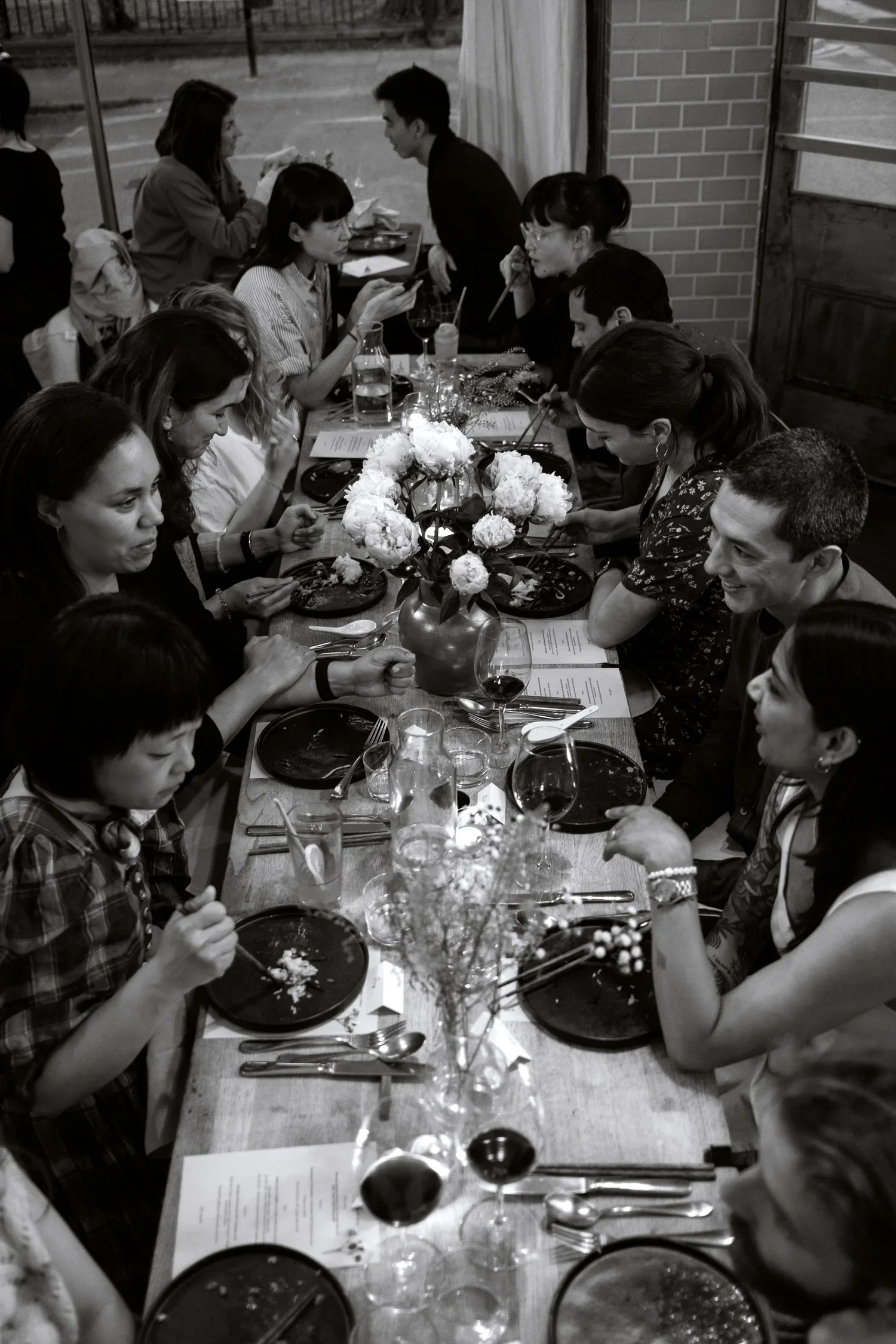Collectives, Cafés, And Supper Clubs: How London's Young People Are Searching For Community
Image Credit: Marie Campain via Maison Kim
I’m sure you’ve seen them. Hordes of twenty-somethings jogging down the streets of Hackney at 9am on a Saturday. Or perhaps you’ve spotted friends at ‘supper clubs’, sharing small plates over an aesthetic, candle-lit table. Whichever it may be, there is no doubt that over the last few years there has been a surge of collectives and clubs in London. But what exactly is behind this sudden craving for community?
With levels of remote working still high and hundreds of nightclubs and bars closing, London is running out of accessible places for people — particularly young people — to socialise. Yet, there is still a demand for spaces outside of work and home. In his landmark book The Great Good Place, urban sociologist Ray Oldenburg calls these environments ‘third places’, characterising them as “neutral ground upon which people may gather…. in which none are required to play host, and in which all feel at home and comfortable”. According to Oldenburg, these spaces are integral to a city’s social scene. If the younger generation’s push for clubs and collectives is anything to go by, he was right.
One of the best examples of Gen Z’s desire for the third place is the resurgence of Supper Clubs. Originating in post-prohibition America, these clubs began as a more lively and communal alternative to restaurants. Now, they have started to reappear across London. I must admit, at first the concept seemed like another TikTok trend to me. Isn’t ‘supper club’ just a pretentious term for ‘dinner party’? It wasn’t until recently that I began to see the appeal. A place to enjoy food with new people in a relaxed setting, without having to take on the burden of hosting or being hosted, sounds like exactly the kind of environment Oldenburg was describing. Perhaps Gen Z has found 2025’s answer to the third place?
Unfortunately, these spaces are already falling victim to monetisation and exclusivity. Brands have started hosting their own supper clubs, featuring influencers posed around tables, PR packages clutched in hand. One trendy London gym chain has even called itself “Third Space”, despite memberships starting at a steep £245 per month. What began as an initiative to create inclusive communities has become just another way to exclude those who cannot afford access.
Nevertheless, there are many collectives fighting to keep these places free and accessible for London’s youth. Take BeauBeaus Cafe, an east London coffee shop which offers its customers a place to make friends, and even learn a new skill, with art and music workshops hosted regularly. Aside from an optional donation to join their community, access to these events is free, ensuring that everyone has the opportunity to network and socialise.
In a city where almost everything comes with a hidden cost, spaces like BeauBeaus Cafe could be the antidote to a dying social scene. The rise of run clubs, supper clubs, and collectives isn’t just a passing trend— Gen Z needs accessible third places. In spite of the barriers, London’s youth is still finding ways to create community on its own terms.

